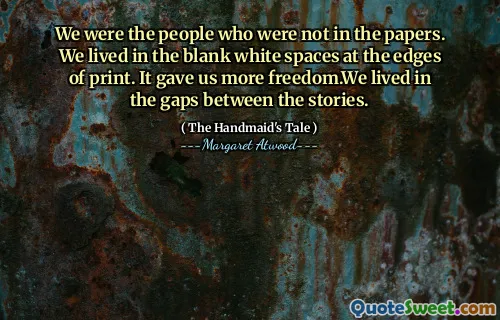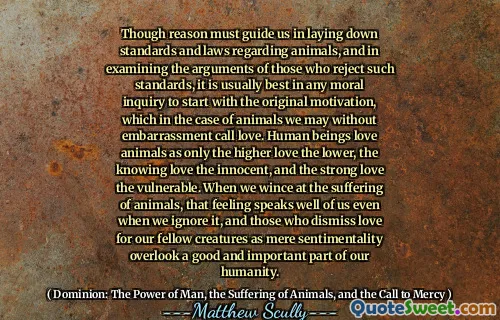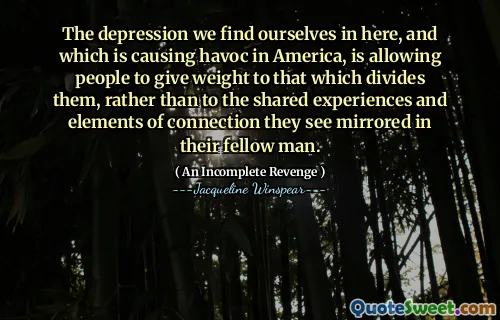How easy it is to invent a humanity, for anyone at all.
In "The Handmaid's Tale," Margaret Atwood explores the theme of how simple it can be for individuals to create a concept of humanity that aligns with their ideologies or desires. This notion reflects the potential for manipulation of human values and societal norms, often leading to the oppression of certain groups. The narrative highlights how easily one can overlook the complexity and richness of true humanity in favor of a constructed version that serves specific agendas.
The author demonstrates through her characters that such inventions of humanity can result in drastic changes to social order and individual lives. The oppressive regime in the story serves as a cautionary tale about the dangers of losing empathy and reducing people to mere functions or roles. In this way, Atwood warns readers about the fragility of human rights and the ease with which they can be disregarded in favor of power and control.






